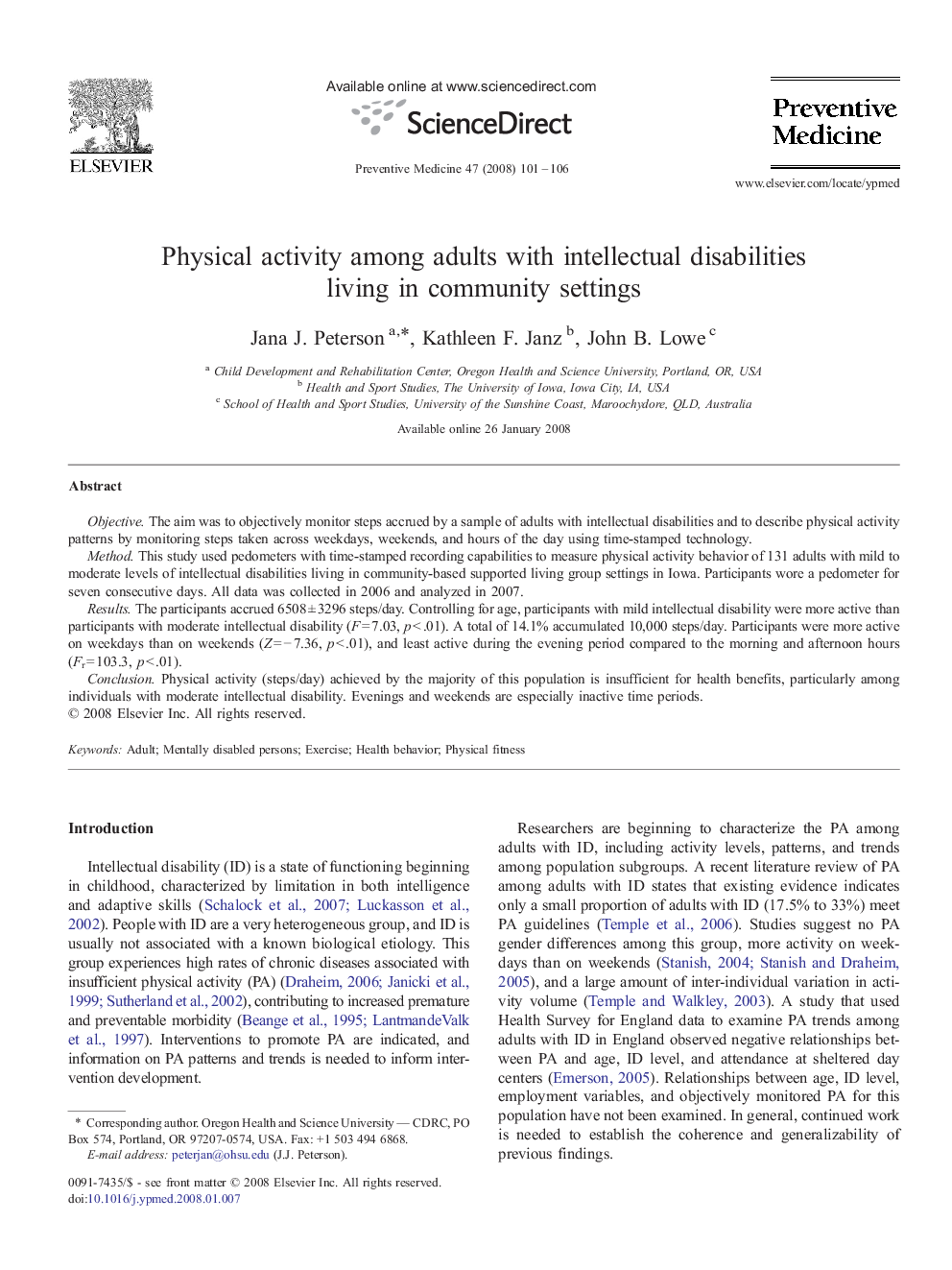| Article ID | Journal | Published Year | Pages | File Type |
|---|---|---|---|---|
| 3101757 | Preventive Medicine | 2008 | 6 Pages |
Objective. The aim was to objectively monitor steps accrued by a sample of adults with intellectual disabilities and to describe physical activity patterns by monitoring steps taken across weekdays, weekends, and hours of the day using time-stamped technology.Method. This study used pedometers with time-stamped recording capabilities to measure physical activity behavior of 131 adults with mild to moderate levels of intellectual disabilities living in community-based supported living group settings in Iowa. Participants wore a pedometer for seven consecutive days. All data was collected in 2006 and analyzed in 2007.Results. The participants accrued 6508 ± 3296 steps/day. Controlling for age, participants with mild intellectual disability were more active than participants with moderate intellectual disability (F = 7.03, p < .01). A total of 14.1% accumulated 10,000 steps/day. Participants were more active on weekdays than on weekends (Z = − 7.36, p < .01), and least active during the evening period compared to the morning and afternoon hours (Fr = 103.3, p < .01).Conclusion. Physical activity (steps/day) achieved by the majority of this population is insufficient for health benefits, particularly among individuals with moderate intellectual disability. Evenings and weekends are especially inactive time periods.
